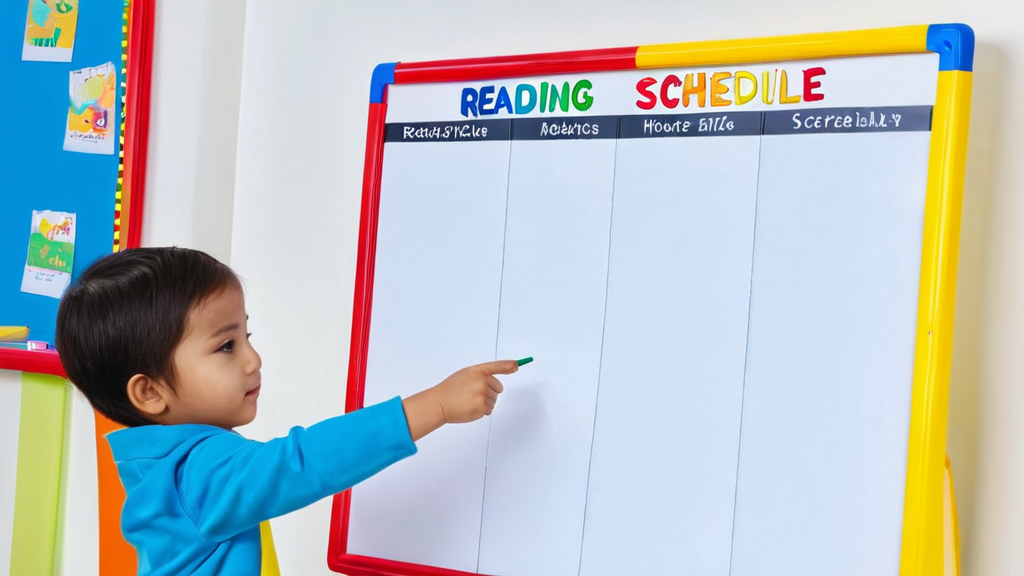Daily Reading Habits: Why Consistency is Key to Literacy Success
Developing strong reading skills is one of the most critical milestones in a child’s education, and building daily reading habits can significantly impact literacy success. In today’s fast-paced world, where distractions are everywhere, establishing a consistent reading routine can help children cultivate a lifelong love of reading and improve their overall literacy abilities. This article will explore why consistency in reading is essential and how it fosters reading success from early childhood through adulthood.
Why Daily Reading Matters
1. Strengthens Vocabulary and Language Skills
Daily reading is one of the most effective ways to expose children to new words, phrases, and sentence structures. The more frequently a child reads, the broader their vocabulary becomes. Exposure to varied language use in different types of books helps children develop their verbal and written communication skills. Consistency in reading gives children the opportunity to naturally absorb new vocabulary and integrate it into their own speech and writing.
By engaging with books daily, children are not only learning words in context but also understanding how language works. This leads to stronger comprehension and the ability to articulate thoughts clearly. The benefits of expanded vocabulary and language skills extend far beyond the classroom, positively influencing a child’s ability to understand complex ideas in all areas of life.
2. Improves Reading Fluency
Fluency is the ability to read text smoothly and accurately with appropriate expression. Like any skill, reading fluency improves with regular practice. Daily reading helps children become more comfortable with words and familiar sentence structures, enabling them to read at a quicker pace without sacrificing comprehension. Fluency is crucial for understanding more advanced texts as children progress in their education.
When children read every day, they begin to recognize words more quickly and can predict what comes next in a sentence, improving both speed and accuracy. Consistent reading also helps with decoding new words, reducing the likelihood of frustration and encouraging a positive relationship with reading.
3. Enhances Focus and Concentration
In an age of short attention spans and constant distractions, reading requires focus and concentration. Regular reading sessions, even for just 15 to 30 minutes a day, can help children improve their ability to focus on one task for an extended period of time. Consistent reading helps children develop the discipline to engage with stories and information without the need for constant breaks.
As a child’s focus strengthens, so does their ability to concentrate on other tasks, such as homework or classwork. This increased attention span is crucial for academic success, as it allows children to absorb and retain more information during lessons and study sessions.
4. Builds Confidence in Reading Abilities
Children who read regularly are more confident in their reading abilities because they are constantly reinforcing their skills. Daily practice gives them the opportunity to encounter and overcome challenges, such as reading difficult words or understanding complex ideas. With each successful reading experience, their confidence grows, making them more willing to tackle longer and more challenging texts.
A consistent reading routine also gives children the chance to build on what they’ve learned each day. This continuous progress, no matter how small, contributes to a child’s overall confidence in their academic abilities, making them feel more prepared and capable in the classroom.
5. Boosts Cognitive Development
Reading daily has been linked to improved cognitive development in children. Regular reading stimulates the brain and improves critical thinking, problem-solving, and comprehension skills. It allows children to make connections between what they read and their own experiences, which can lead to a deeper understanding of the world around them.
Reading fiction encourages imagination and empathy, while non-fiction provides factual knowledge that broadens a child’s understanding of different subjects. Whether a child is reading stories or educational materials, their cognitive abilities are being sharpened with every page.
6. Encourages a Lifelong Love of Reading
A love for reading doesn’t just happen overnight. It is cultivated through consistent exposure to books and positive reading experiences. By making reading a part of their daily routine, children are more likely to develop a passion for it. The habit of reading becomes something they look forward to, rather than a chore.
Children who grow up with a love of reading tend to carry this passion into adulthood, continuing to read for pleasure and personal growth. A lifelong love of reading not only enriches a person’s life but also supports continuous learning and development throughout their career and personal endeavors.
Read Also
Simple Steps to Establish a Consistent Reading Schedule
How to Build Consistent Reading Habits
1. Set a Designated Reading Time
One of the best ways to establish consistent reading habits is by setting a designated time for reading each day. Whether it’s after breakfast, before bedtime, or during a quiet moment after school, having a set time encourages discipline and ensures that reading becomes a regular part of the day. For younger children, 15-20 minutes of reading is a good start, while older children can benefit from 30 minutes or more.
2. Create a Comfortable Reading Environment
Make reading an enjoyable experience by creating a cozy reading nook or setting up a quiet, distraction-free space where your child can immerse themselves in their books. Comfortable seating, good lighting, and easy access to books will make reading a more appealing activity. When children have a space that they associate with reading, it becomes easier to form the habit.
3. Offer a Variety of Reading Materials
To keep children engaged in their daily reading routine, offer a wide range of reading materials. Children are more likely to stick with the habit if they are reading books that interest them. This includes fiction, non-fiction, comic books, poetry, and even educational magazines. The variety keeps reading fun and allows children to explore new genres and topics, broadening their interests.
4. Model Good Reading Habits
Children are more likely to adopt reading habits if they see their parents or guardians reading regularly. Be a role model by setting aside your own reading time and sharing your love for books with your child. Discuss what you’re reading and encourage them to do the same. When children observe reading as a valued and enjoyable activity, they are more likely to develop the same mindset.
5. Celebrate Reading Milestones
To keep your child motivated, celebrate their reading achievements. Whether it’s finishing a book, reaching a certain number of minutes read each day, or improving their reading speed, recognizing their progress reinforces the importance of consistency. You could create a reward system with small incentives, such as choosing a new book or having a special reading-related outing.
Conclusion
Daily reading habits are the foundation for literacy success. Consistency not only builds stronger reading skills but also fosters a love of reading that can last a lifetime. By reading every day, children improve their vocabulary, fluency, focus, and comprehension, setting themselves up for academic and personal success.
For parents looking to further support their child’s reading development, programs like Reading Head Start by Sarah Shepard offer structured, step-by-step approaches to helping children master reading skills early on. With expert guidance and personalized resources, this program empowers parents to establish consistent reading routines and foster a love for learning in their children.
By making reading a daily priority, you give your child the tools they need to thrive in school and beyond.


